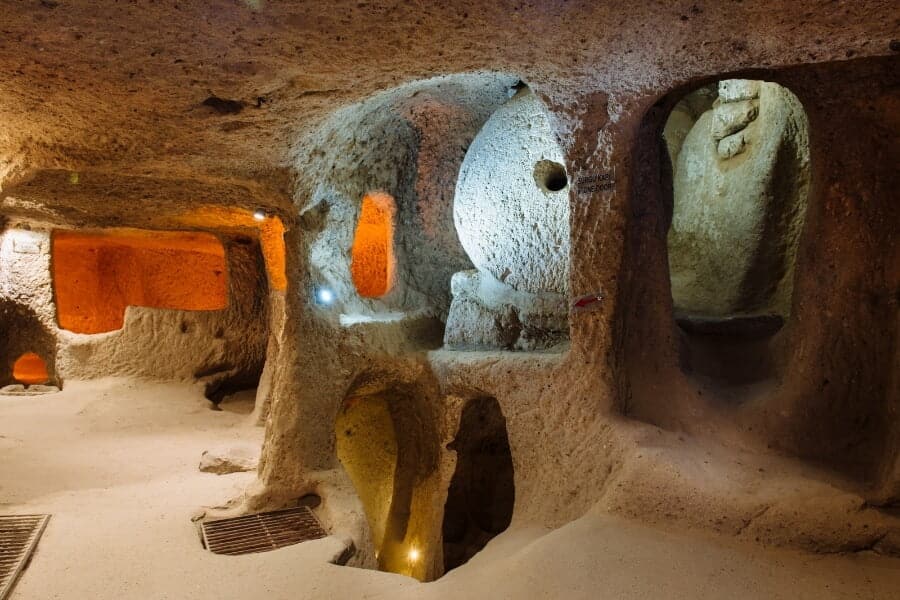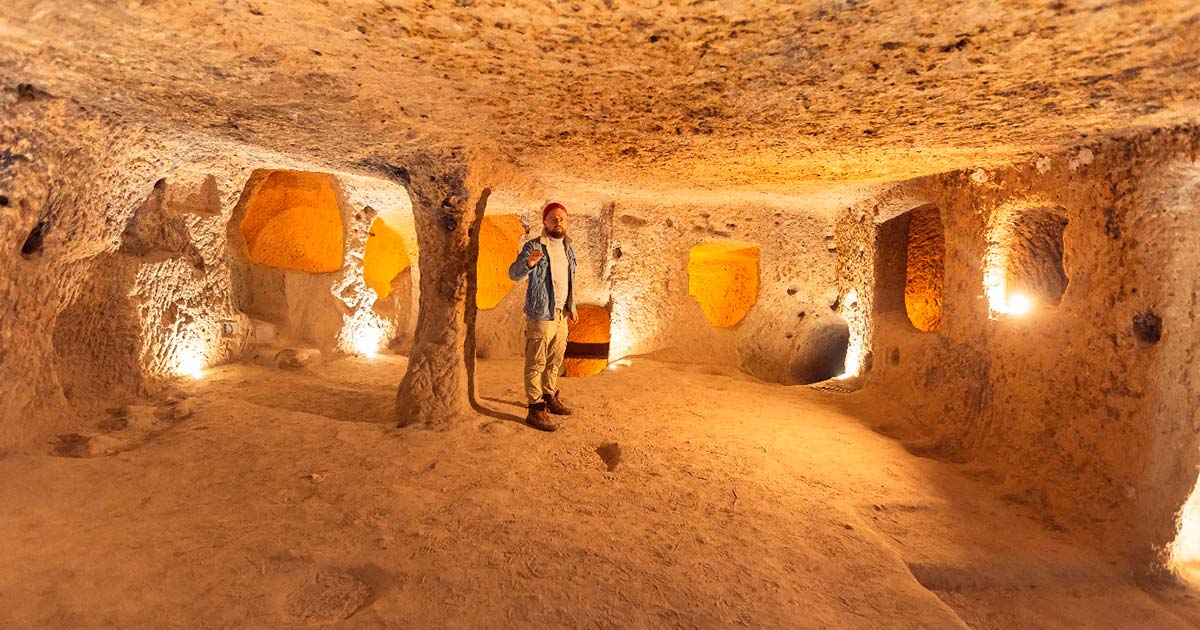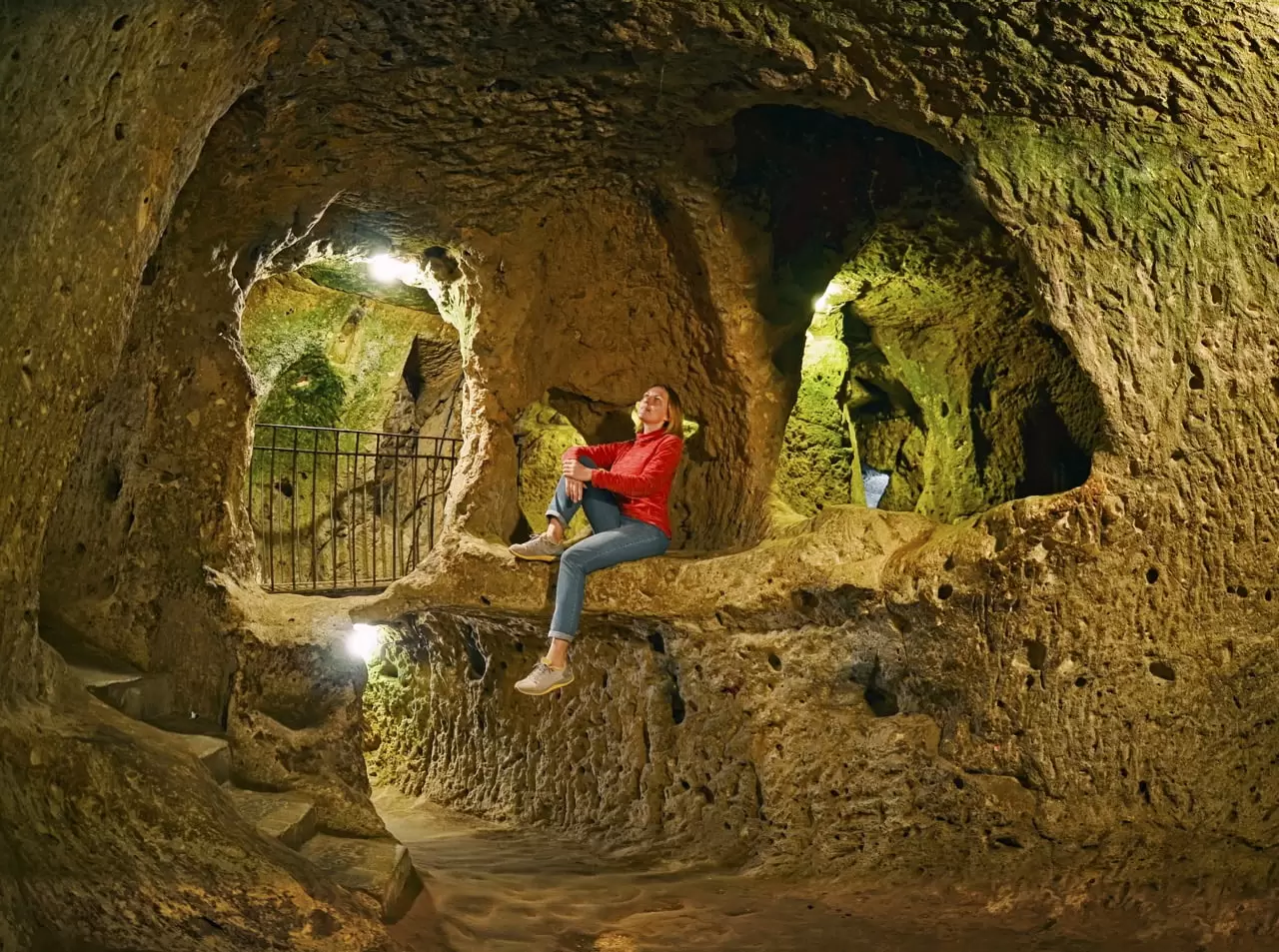In 1963, a routine discovery in Cappadocia, Turkey, revolutionized our understanding of ancient subterranean architecture. While renovating his home, a local resident accidentally stumbled upon a hidden room behind a wall. This unexpected find led to the discovery of Derinkuyu, an expansive underground city that had been concealed beneath the surface for centuries.
Historical Origins: The Phrygian Civilization
Although Derinkuyu was rediscovered only in the 20th century, historical evidence suggests that it was constructed much earlier by the Phrygians, an advanced Iron Age civilization that thrived from the 12th century BC to the 7th century BC. The Phrygians were known for their architectural and engineering prowess, and Derinkuyu is a testament to their ingenuity. The underground city was likely built as a means of defense, offering protection against invasions, extreme weather conditions, and other natural threats. Its complex design, featuring strategically placed air shafts, wells, and common areas, demonstrates how the Phrygians adapted to their challenging environment.

Engineering Marvel: The Structure of Derinkuyu
Derinkuyu is one of the largest underground cities ever discovered. Spanning multiple levels and reaching depths of up to 60 meters (200 feet), it could have sheltered around 20,000 people and their livestock. The city is equipped with narrow passageways to control access and large storage spaces to preserve food. The complex also contains a sophisticated network of tunnels, ventilation shafts, and defense mechanisms, showcasing the advanced engineering techniques employed by its creators.

The fact that Derinkuyu was designed to accommodate such a large population and their livestock, along with communal spaces, suggests that the city was intended to support a thriving community over an extended period. Its construction reflects a deep understanding of how to build for both long-term sustainability and defense.
Historical Evolution and Expansion
Over time, Derinkuyu was expanded and further utilized by various civilizations, including the Byzantines. These later inhabitants added to the city’s complexity, turning it into an even more sophisticated structure. The rediscovery of the underground city provided crucial insights into the role such structures played in the survival of ancient communities in times of peril.

Modern Significance: A Symbol of Resilience and Ingenuity
Today, Derinkuyu is not only a remarkable architectural achievement but also a symbol of the resilience and resourcefulness of ancient peoples. It offers us a glimpse into the lengths to which early civilizations went to protect themselves from environmental and external threats. This underground city remains one of Cappadocia’s most iconic landmarks, attracting thousands of visitors annually, who are drawn to its impressive scale and historical significance.

Derinkuyu stands as a testament to the Phrygians’ ingenuity and an enduring legacy of human adaptation. Its discovery has significantly contributed to our understanding of ancient life in Cappadocia, offering a window into the ways these people not only survived but thrived in a challenging world.
Conclusion
The hidden world beneath Cappadocia’s surface holds endless stories of ancient ingenuity, resilience, and survival. Derinkuyu, with its exceptional engineering, complex design, and cultural significance, continues to be an extraordinary example of human history. Its rediscovery highlights the importance of preserving and exploring our past, ensuring that these remarkable achievements continue to inspire future generations.

